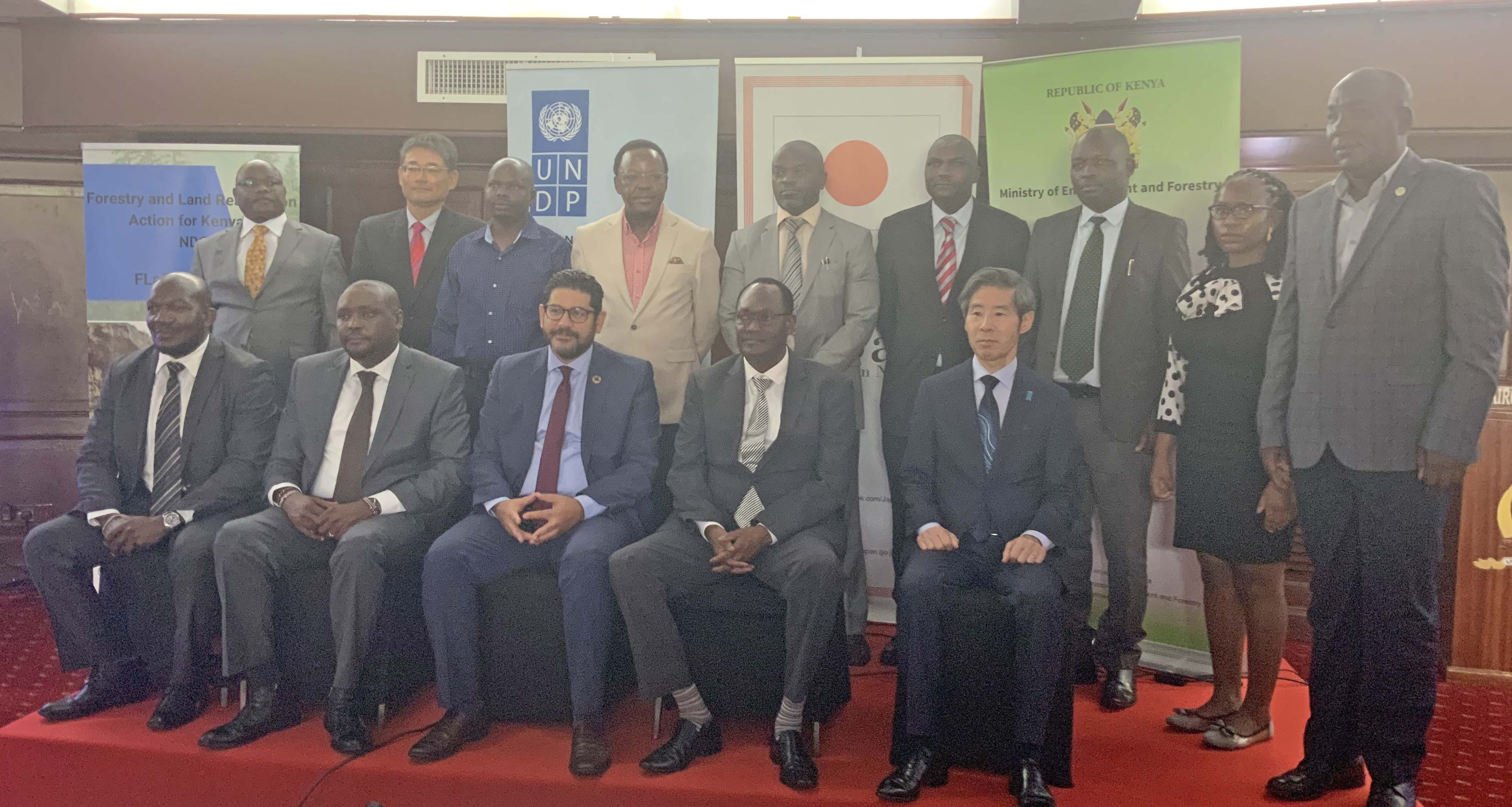.
Salutations
· Amb. Ken Okaniwa, Ambassador of Japan to Kenya
· Dr. Chris Kiptoo, Principal Secretary, Ministry of Environment and Forestry
· Members of the media fraternity
· Distinguished Ladies and Gentlemen
Let me start by thanking and welcoming all to the launch of the Forest and Land Restoration Action for Kenya’s NDC (FlaRAK) project, an innovative project that was co-created by the Ministry of Environment and Forestry, and UNDP.
My sincere appreciation for the strong and longstanding partnership between the Ministry of Environment and Forestry and UNDP. UNDP has a robust portfolio of programs in environment and resilience that are implemented in close collaboration with the Ministry. The programs cover environmental management, biodiversity, natural resource management, climate change and disaster risk management.
Special thanks to the Government of Japan for their continued support to Kenya and their partnership with UNDP. The consistent partnership between UNDP in Kenya and Japan in the current Country Programme Document 2018-2022 has provided project financing worth over US$ 11 Million worth of projects in Kenya in the last 5 years, funding that has gone into critical thematic areas including COVID-19, response to drought and floods, peace building and conflict prevention and enhancing legal identity.
I recognize the deepened partnership through support of the next phase of UNDP’s Climate Promise dubbed from ‘pledge to impact’; as launched in Glasgow, and which seeks to scale up support to turn NDC targets into concrete action in at least 100 countries and emphasize that Japan now becomes the newest and the largest partner by providing significant climate funds (USD 41.7 million) that will be spread amongst 10 countries (Kenya included).
Congratulation to the Government of Kenya on receipt of USD 2,680,898 from the Government of Japan towards the ‘Forest and Land Restoration for Kenya’s NDC (FLaRaK) mentioning that the FLARAK Project is anchored under the UNDP’s Climate Promise.
The project aims to implement robust forest restoration and protection activities serving as catalytic interventions that will put forth green recovery in Kenya’s NDC implementation plans, while building resilience to climate change. Further mention that the catalytic project targets three important ecosystems of Kakamega Forest, Kaptagat and Magadi-Suswa that play an important role in the Country’s economy and provide critical services to sustain human life.
The environment and forestry sectors are the foundation upon which Kenya’s growing economy is anchored, supporting key primary sectors such as manufacturing, energy, health, and agriculture, while empowering rural livelihoods as well as provisioning environmental and ecosystem services. The essential centrality of forests and land restoration in re-modelling a better future for ‘Mother Earth’ and securing our current and coming generations from these ravaging challenges.
Kenya’s pristine and scenic biodiversity and wildlife resources are the globally renown mosaic that depend entirely on her forestry, wide expansive savanna rangelands, and grasslands dotting her wide undulating plateaus and montane ecosystems.
I celebrate Kenya for her efforts towards a Greener and Cleaner Kenya, that is spurring massive reforestation and land restoration efforts nationally, even as the country seeks to bounce back from the Covid 19 pandemic and reaffirm the global community’s willingness to continue supporting her meet the vital constitutional 10% tree cover, as well as the 5.1 million hectares restoration commitments.
Kenya is doing more than her fair share to help combat the global climate change problem, being among the first country in Africa to submit her first Intended Nationally Determined Contribution in 2015, being among the first African country to submit an ambitious updated Nationally Determined Contribution (NDC) to the United Nations Framework Convention on Climate Change on 28th December 2020, submitting her Land Degradation Neutrality Targets to the United Nations Convention on Combating Desertification (UNCCD), as well as her current leadership in the Climate Security as a Non-Permanent Member to the United Nations Security Council.
The linkage between the FlaRAK project and ‘Tree Growing and Sustainable Forestry Finance Management Programme’ will support resource mobilization to help Kenya meet and even surpass her forestry and land restoration targets, leveraging on available global climate finance as well as private sector capital. The project already held a LPAC where the project received positive appraisal for its relevance and timeliness. Emphasize the importance of collaboration to ensure the project results are achieved and scaled for lasting impact in our communities. Note that there has been preliminary work already undertaken to identify synergies with longer term projects to be implemented by JICA and NEMA.
UNDP will continue to support such efforts to sustain resilient forest ecosystems that benefit local economies, protect biodiversity, and address the root causes of climate change through technical advisory, facilitating learning and south-south exchanges, designing innovative finance platforms as a well as strengthening governance to developing countries.
Let me conclude by thanking the Ministry for the cooperation accorded so far including by the Cabinet Secretary, Mr. Keriako Tobiko and Principal Secretary, Dr. Chris Kiptoo who have provided input in the project and guidance in its alignment to policy; and the Government of Japan for the strong and longstanding partnership and specifically to Amb. Ken Okaniwa for gracing the launch of this project.

 Locations
Locations
